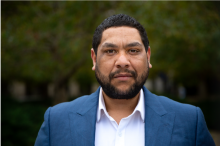Our commitment
DoT’s purpose is Empowering a Thriving Community, and we are committed to supporting and encouraging cultural diversity in the workplace. At DoT, we enable the development and delivery of a successful and sustainable employment pathway, which follows a best practice approach by providing a set of minimum requirements, processes, and targets to guide Aboriginal and Torres Strait Islander engagement and communications.
DoT has developed an Aboriginal Employment Plan, that works in conjunction with our Reconciliation Action Plan, to support Aboriginal and Torres Strait Islander engagement and participation. Through these plans DoT has outlined a set of actions to establish foundations, which are Connect, Employ and Belong, to provide more opportunity for Aboriginal and Torres Strait Islander people to work at DoT and to advance the careers of those who are already employed at DoT.
These strategies and actions are built into each area to achieve and sustain significant improvements in attracting and retaining Aboriginal and Torres Strait Islander employees.
Normalising cultural diversity in the workplace
Diversity is a way of finding, encouraging, and embracing different perspectives from our customers, colleagues, and stakeholders. A diverse workplace ensures everyone has a place, purpose, and sense of belonging. By using diversity targets, we ensure that bringing these perspectives into DoT is explicitly and intentionally designed and creates necessary accountability. The Public Sector Commission (PSC) has identified six diversity groups for State Government agencies to focus on for greater representation in the workforce:
1. Women in the Senior Executive Service
2. Young people
3. Aboriginal and Torres Strait Islander people
4. Culturally and linguistically diverse people
5. People with a disability; and
6. People of diverse sexualities and genders.
At DoT, all employees are strongly encouraged to attend the one-day off-site Cultural Awareness Training (CAT) with Sister Kate Home Kids Aboriginal Corporation. Since commencing the program, 974 employees have participated in the training. DoT will continue to offer CAT until mid-2022.
Quote from Isabeau Korpel - A/Executive Director People and Culture, Department of Transport
Worldwide leaders acknowledge that diversity brings a competitive edge to an organisation. In Australia we have the wisdom of our First Nations People who provide an additional depth to diversity of thought and being. We have set the intent to expand our connections with Aboriginal and Torres Strait Islander Peoples, open our mindset to see how we can collaboratively design a new working space and create a space of belonging where we ‘hear’ each other. I am personally passionate about capturing this wisdom and honouring the space of our First Nations People.
For more information visit: https://www.transport.wa.gov.au/

